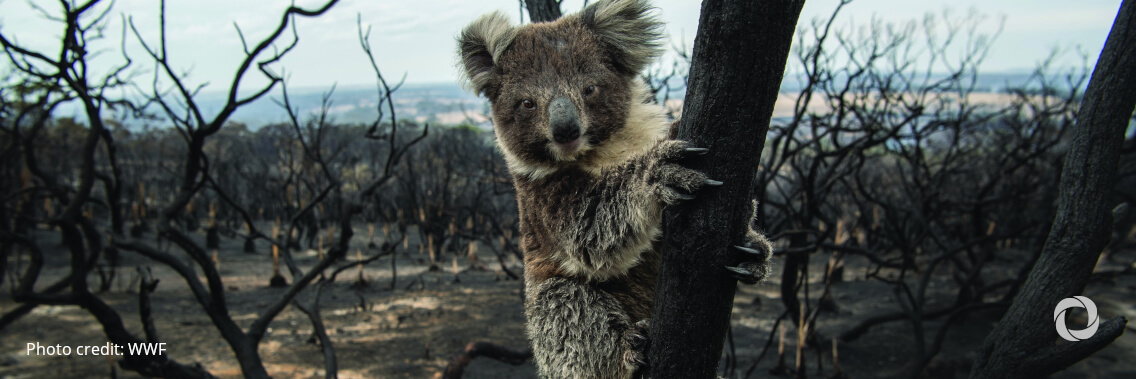92% of countries’ new climate action plans now include measures to tackle nature loss, according to a new report published by WWF at the Glasgow COP26 climate talks, an encouraging sign that more countries are recognizing the crucial role of nature-based solutions in addressing the global climate crisis.
Nature-based solutions are initiatives that protect, restore and sustainably manage land and ocean ecosystems such as forests, peatlands, wetlands, savannahs, coral reefs, and mangroves, while simultaneously addressing other societal challenges. It’s estimated that they could provide up to 30% of the climate change mitigation needed to achieve the goals of the Paris Agreement.
The report, NDCs – A Force for Nature?, finds that 105 out of 114 enhanced Nationally Determined Contributions (NDCs) submitted by 12 October included nature-based solutions. NDCs are the way the parties to the Paris Agreement communicate their climate plans and are critical to achieving its goal to limit global warming to 1.5°C.
According to the report, 96 NDCs included nature-based solutions in the context of mitigation measures and 91 in the context of adaptation plans. This reflects a positive trend compared to previous submissions, up from 82% when WWF last assessed countries’ commitments in July.
Dr. Stephen Cornelius, Chief Adviser on Climate Change at WWF, said:
“It is encouraging that more countries are rightly recognizing nature as a climate hero as there is no pathway to limit global warming to 1.5°C without protecting and restoring nature. The climate crisis and nature loss are two sides of the same coin and we cannot tackle one without the other.
“It’s vital that, alongside slashing carbon emissions, the COP26 climate summit must inspire countries to maximize the potential of nature in their climate plans and deliver the financing to back this up. Failure to do so will undermine efforts to avert the worst impacts of climate change.
“This is the decade when we must collectively limit climate change and restore nature. Nature-based solutions can not only help to reduce greenhouse gas levels, but also protect people and wildlife and create good jobs.”
More than three times as many NDCs now refer to the Sustainable Development Goals, the Convention on Biological Diversity, or other global processes. There was also a large increase in the number of NDCs explicitly referring to Indigenous peoples and local communities (IPLCs) – up by 88%. This demonstrates increasing recognition of their essential role as custodians of more than 80% of our planet’s biodiversity.
The analysis also surfaces some issues and challenges, both methodological and also regarding a lack of ambition. The UN Framework Convention on Climate Change (UNFCCC) has yet to fully recognize the critical contribution of nature-based solutions in addressing the climate crisis. Guidance around the development and nomination of NDCs does not currently include a call for parties to maximize the potential of nature and nature-based solutions, and the role of oceans and coastal ecosystems in contributing to mitigation and adaptation is also insufficiently emphasized.
Gavin Edwards, the Global Coordinator, Nature lead at COP26 for WWF International, said:
“While more and more governments are committing to take action on nature as part of their climate commitments, there are still too few nature-based solutions being pursued. Given that nature could contribute up to 30% of the climate solutions needed to meet the goals of the Paris Agreement and prevent runaway climate change, this has to change – and fast. There is no viable way to limit global warming to 1.5C without action on nature.
“Governments meeting in Glasgow have announced major commitments on forests and land use in the last few days. But this is only part of the picture. Nature must be recognized in the COP outcome, and governments must commit to urgently scale up and implement nature-based solutions.”
WWF is calling for all countries to continue to strengthen their national climate plans and help raise global ambition by better incorporating nature-based solutions, land use, and agriculture in their enhanced NDCs in this and future rounds of submissions.
Decisions adopted at COP26 should include a clear request for countries to maximize the potential of nature in their NDCs and other national climate plans, for example by including nature-based solutions, land use, and agriculture. Governments must ensure new and additional financing for nature-based solutions, which should be increased to at least 30% of overall climate finance.

